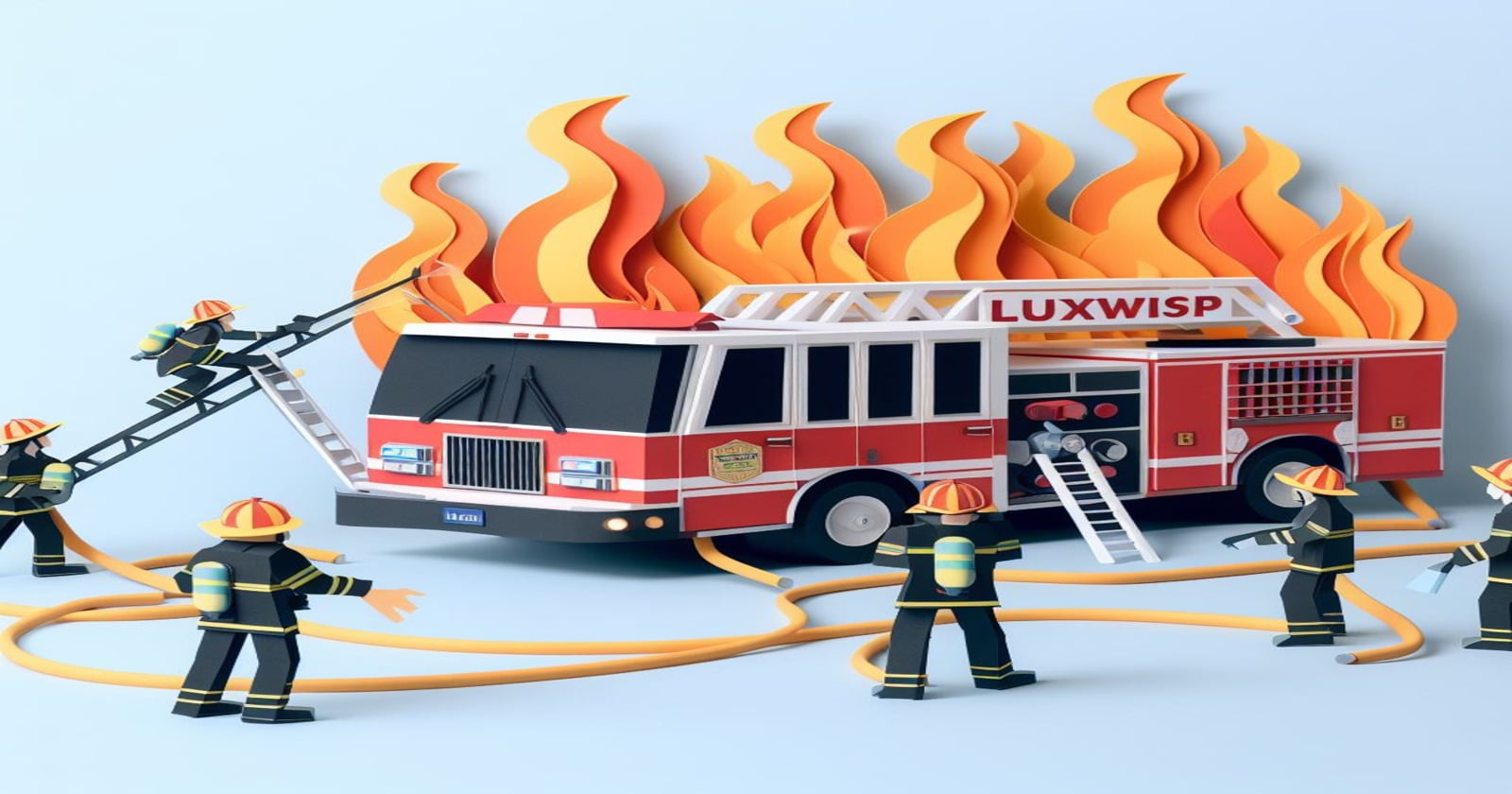The pros of being a firefighter are the sense of purpose and fulfillment derived from saving lives and protecting properties, and the physical fitness that comes with the job’s demands. Additionally, firefighters enjoy job security, excellent benefits, and the camaraderie that comes with being part of a disciplined team.
The cons of being a firefighter include the physical and emotional strain from the risk of injury or death and potential mental health issues like post-traumatic stress disorder. Firefighters also work irregular hours, which can strain personal relationships, and are exposed to toxic substances that can affect their long-term health.
Key Takeaways:
- Competitive salaries and comprehensive benefits packages provide financial stability and support for firefighters and their families.
- The constant need for firefighters in communities ensures steady employment opportunities and job security.
- Firefighters play a crucial role in ensuring the safety and well-being of their fellow citizens, making a positive impact on the lives of others.
- The challenges and risks in firefighting, such as physical exertion, exposure to traumatic incidents, and mental health issues, should be considered when pursuing a career as a firefighter.
Facts About Firefighters: Earnings, Growth, and More:
- A Rewarding Salary Awaits: In May 2022, firefighters enjoyed a median annual wage of $51,680, signaling a robust earning potential in this daring profession.
- Striking Income Potential: Diving deeper into their finances, the mean annual wage for firefighters touched $56,310.
- An Accessible Entry-Level Path: For those starting in the field, firefighters in the lowest 10 percent earned up to $12.95 per hour or $26,940 per year.
- Room for Growth: Moving up, those landing in the lower 25 percentile took home up to $17.24 per hour or $35,850 per year.
- Sky’s the Limit: For the high flyers in firefighting, the top 10 percent managed to secure a whopping $93,790 annually or even more!
- A Future-Proof Career: From 2022 to 2032, the employment of firefighters is projected to grow by 4 percent, ensuring stability in the field.
- An Abundance of Opportunities: Over the next decade, an average of 26,400 openings per year for firefighters is anticipated, providing ample chances for new entrants.
- Significant Growth Ahead: An impressive 6.05% growth is anticipated for firefighters over a similar period, indicating a thriving future.
- Outpacing National Averages: The occupation’s expected growth is touted to surpass the national average, highlighting its resilient demand.
| Pros of Being a Firefighter | Cons of Being a Firefighter |
|---|---|
| Sense of Purpose | Physical and Emotional Strain |
| Physical Fitness | Risk of Injury or Death |
| Team Bonding | Irregular Hours |
| Job Security | Exposure to Toxic Substances |
| Benefits and Compensation | Psychological Trauma |
| Variety of Tasks | High Levels of Responsibility |
| Opportunities for Advancement | Demanding Training |
| Training Opportunities | Public Scrutiny |
| Respect and Admiration | Financial Limitations |
| Post-Traumatic Growth | Wear and Tear on Equipment |
Pros of Being a Firefighter

- Sense of Purpose: Firefighters often express a deep sense of fulfillment and purpose from their job. Every day, they have the potential to save lives, property, and the environment. Their direct impact on the community can be seen and felt, making their role crucial in society.
- Physical Fitness: The demands of the job require firefighters to maintain peak physical condition. This not only ensures their own safety but also allows them to effectively rescue others. Regular training and exercises mean that firefighters often enjoy better overall health compared to many other professions.
- Team Bonding: Working in such close quarters and under high-pressure situations fosters strong bonds between firefighters. This camaraderie can be likened to that of a close-knit family, providing emotional and mental support during tough times and fostering lifelong friendships.
- Job Security: Fire departments are essential services that communities will always need. While the job market can fluctuate in other sectors, firefighters typically enjoy a higher degree of job stability.
- Benefits and Compensation: Many fire departments offer competitive salaries with comprehensive benefits, including health insurance, retirement plans, and overtime pay. Moreover, in certain departments, the possibility of early retirement exists, allowing for a longer period of post-retirement life.
- Variety of Tasks: No two days are the same in firefighting. Apart from combating fires, firefighters might engage in rescue operations, medical emergencies, public education campaigns, and equipment maintenance. This variety can make the job exciting and prevent monotony.
- Opportunities for Advancement: Fire departments usually have a clear hierarchy, offering growth opportunities. With experience, dedication, and further training, a firefighter can rise through the ranks, taking on leadership roles and greater responsibilities.
- Training Opportunities: Firefighters regularly undergo training to stay updated with the latest techniques and equipment. This constant learning not only enhances their skills but also ensures they are prepared for any emergency.
- Respect and Admiration: Firefighters are often looked up to and respected in the community. Their courage, dedication, and service often make them role models for younger generations.
- Post-Traumatic Growth: While dealing with traumatic incidents can be challenging, many firefighters experience post-traumatic growth. This means they develop resilience, deeper empathy, and a renewed appreciation for life after facing adversities.

Cons of Being a Firefighter
- Physical and Emotional Strain: The job can be physically demanding, with long hours, heavy equipment, and exposure to extreme conditions. Moreover, witnessing tragic incidents can lead to emotional stress, making it imperative to manage one’s mental health actively.
- Risk of Injury or Death: Firefighting is inherently dangerous. Firefighters face risks from flames, collapsing structures, and hazardous materials. Despite rigorous training and safety precautions, injuries, and fatalities can and do occur.
- Irregular Hours: Firefighters often work long shifts, sometimes 24 hours or more, and can be called in at any time, including holidays. This irregular schedule can strain personal relationships and family life.
- Exposure to Toxic Substances: Even with protective gear, firefighters can be exposed to harmful chemicals and smoke. Prolonged exposure can increase the risk of certain health issues, including respiratory problems and some forms of cancer.
- Psychological Trauma: Encountering tragic scenes, such as fatalities or severe injuries, can lead to post-traumatic stress disorder (PTSD) or other mental health challenges.
- High Levels of Responsibility: A slight error in judgment can have severe consequences in this profession, not just for the firefighter but for those they are trying to save. This weight of responsibility can be mentally taxing.
- Demanding Training: The training to become a firefighter is intense and exhaustive. Not everyone who starts the process will complete it, and even after becoming a firefighter, the continuous training can be grueling.
- Public Scrutiny: Firefighters, being public servants, are under continuous scrutiny. Any perceived mistake or misjudgment can lead to public criticism or media attention.
- Financial Limitations: While many departments offer competitive pay, starting salaries in some regions might be lower, especially when considering the risks involved in the job.
- Wear and Tear on Equipment: The equipment used in firefighting, from personal protective gear to fire trucks, undergoes significant wear and tear. This not only represents a recurring cost for departments but can also pose safety concerns if not adequately maintained or replaced.

Salary and Benefits
Firefighters often receive competitive salaries and comprehensive benefits packages. These men and women put their lives on the line every day to protect their communities, and it’s only fitting that they’re compensated fairly for their bravery and dedication.
The salary of a firefighter can vary depending on factors such as location, experience, and rank. However, in general, firefighters earn a decent income that allows them to support themselves and their families.
Along with their salaries, firefighters also enjoy a range of benefits. These benefits typically include healthcare coverage, retirement plans, and paid time off. Fire departments understand the physical and mental toll that this profession can take, and they strive to provide their firefighters with the support they need.
Additionally, many fire departments offer opportunities for career advancement and professional development, which can lead to higher salaries and greater benefits in the long run.
Job Security
Firefighting offers steady employment opportunities due to the constant need for firefighters in communities. With the high demand for their services, firefighters can expect a stable career outlook.
This job security provides peace of mind and reassurance for those pursuing a career in firefighting.
Steady Employment Opportunities
With a high demand for their services, firefighters can enjoy steady employment opportunities in their communities. Firefighters play a crucial role in ensuring the safety and well-being of their fellow citizens. As a result, fire departments are often in need of skilled individuals to join their ranks. This demand for firefighters creates a sense of job security, as there will always be a need for their expertise.
Whether it’s responding to emergencies, conducting safety inspections, or providing public education, firefighters are an integral part of their communities. This steady employment allows firefighters to have stability in their careers, knowing that they’re contributing to the greater good and making a positive impact on the lives of others.
High Demand for Firefighters

The demand for firefighters remains high, ensuring job security in the profession. Firefighters play a crucial role in society by protecting lives and property from fires and other emergencies. Due to the unpredictable nature of fires and the need for immediate response, there’s a constant demand for firefighters in communities across the country.
With the increasing population and urbanization, the demand for firefighters is expected to continue rising. Additionally, advancements in technology and infrastructure have created new challenges and risks, further increasing the need for well-trained firefighters. This high demand guarantees job security for those pursuing a career in firefighting.
Firefighters can take comfort in knowing that their skills and expertise will always be in demand, providing them with stable employment opportunities.
Stable Career Outlook
One of the main advantages of being a firefighter is the strong job security it offers. Firefighters play a crucial role in society, and their services will always be in demand. The need for firefighters arises from various emergencies, such as fires, accidents, and natural disasters, which can occur at any time.
This ensures a stable career outlook for firefighters, as there will always be a need for their skills and expertise. Additionally, firefighting is considered an essential service, and governments prioritize funding for fire departments to ensure public safety. This financial support further contributes to the job security of firefighters.
Heroic and Fulfilling Work

Being a firefighter allows individuals to experience the adrenaline rush of saving lives and the fulfillment of making a real difference in their community. It’s a heroic and fulfilling career that offers numerous rewards and personal growth opportunities.
Here are three reasons why being a firefighter is both heroic and fulfilling:
- Saving Lives: Firefighters are often the first responders in emergency situations, putting their lives on the line to rescue people from fires, accidents, and other life-threatening situations. The ability to save lives and make a direct impact on someone’s survival is incredibly rewarding and fulfilling.
- Community Impact: Firefighters play a crucial role in their communities, not only by responding to emergencies but also by educating and raising awareness about fire safety. They become trusted figures in the community, providing reassurance and support during difficult times. The opportunity to serve and protect their fellow community members creates a strong sense of fulfillment.
- Teamwork and Camaraderie: Firefighters work closely with a team, relying on each other’s skills, knowledge, and support to effectively respond to emergencies. The camaraderie and teamwork fostered in the fire service create strong bonds and a sense of belonging. The shared experiences and challenges strengthen relationships and contribute to a fulfilling work environment.
Physical Demands and Risks
Being a firefighter isn’t for the faint-hearted. The physical demands of the job can take a toll on the body, with firefighters often facing strenuous tasks such as carrying heavy equipment, climbing ladders, and dragging hoses.
Moreover, the risks associated with the job are ever-present, as firefighters are exposed to dangerous situations like fires, collapsing buildings, and hazardous materials.
Physical Strain and Injuries
Firefighters often face physical strain and the risk of injuries due to the demanding nature of their job. The physical demands placed on firefighters can take a toll on their bodies and lead to various injuries.
Some of the common physical strains and injuries that firefighters encounter include:
- Musculoskeletal injuries: The repetitive lifting, carrying heavy equipment, and physically demanding tasks can result in sprains, strains, and back injuries for firefighters. The constant physical exertion can put a significant strain on their muscles and joints.
- Burns and respiratory issues: Firefighters are exposed to extreme heat and smoke, which can cause burns and respiratory problems. Inhaling toxic fumes and particles can lead to long-term health issues such as lung damage and respiratory diseases.
- Trauma and falls: Firefighters often work in hazardous environments, which increases the risk of falls and traumatic injuries. They may encounter unstable structures, debris, and hazardous substances that can lead to accidents and serious injuries.
Despite these risks, firefighters are trained to prioritize safety and take necessary precautions to minimize the likelihood of injuries.
Occupational Hazards and Safety
Experiencing physical exertion and facing potential risks are inherent aspects of a firefighter’s profession. Firefighters are regularly exposed to hazardous conditions that can pose serious threats to their safety. They often work in extreme temperatures, dense smoke, and unstable structures, putting their lives on the line to save others.
The physical demands of the job are immense, requiring firefighters to be in excellent physical condition. They must carry heavy equipment, climb ladders, and maneuver through tight spaces while wearing protective gear. This level of physical exertion can lead to fatigue and increase the risk of injuries.
Additionally, firefighters are at risk of burns, smoke inhalation, and falling debris during rescue operations. It’s crucial for firefighters to undergo rigorous training and follow safety protocols to minimize these occupational hazards and ensure their well-being on the job.
Emotional Toll and Trauma

He often struggles with the emotional toll and trauma that comes with being a firefighter. Witnessing devastating scenes and experiencing life-threatening situations can take a significant toll on a firefighter’s mental and emotional well-being.
Here are three key factors that contribute to the emotional toll and trauma faced by firefighters:
- Traumatic incidents: Firefighters are exposed to traumatic incidents on a regular basis. They witness horrific scenes, such as burning buildings, severe injuries, and even fatalities. These experiences can lead to post-traumatic stress disorder (PTSD), anxiety, depression, and other mental health issues.
- Loss and grief: Firefighters often face the loss of colleagues, victims, and even innocent lives. Dealing with the grief and aftermath of these losses can be extremely challenging and emotionally draining. The constant exposure to death and destruction can leave a lasting impact on their mental and emotional well-being.
- Cumulative stress: The nature of a firefighter’s job is inherently stressful. The long hours, physical demands, and constant exposure to danger can lead to chronic stress. This accumulated stress can have detrimental effects on their mental health, leading to burnout, substance abuse, and relationship problems.
It is crucial to recognize and address the emotional toll and trauma faced by firefighters. Providing adequate support, counseling services, and resources can help them cope with these challenges and maintain their well-being.
Irregular Work Schedule
One of the main downsides of being a firefighter is the irregular work schedule, which often includes long shifts and unpredictable hours. Firefighters work in shifts to ensure that there is always coverage at the fire station. This means that they may have to work overnight, on weekends, and during holidays. The irregularity of their work schedule can make it difficult for firefighters to maintain a work-life balance and plan activities with their families and friends.
| Pros | Cons |
|---|---|
| Firefighters have more days off during the week | Long shifts can be physically and mentally exhausting |
| They have the opportunity to pursue other interests or part-time jobs | Unpredictable hours can disrupt personal and social life |
| Working in shifts allows for flexibility in scheduling appointments or errands | It can be challenging to adjust to different sleeping patterns |
| Firefighters often have extended periods of time off between shifts | The irregular work schedule can cause stress and fatigue |
Limited Career Advancement Opportunities
Firefighters have limited career advancement opportunities, but they can still find fulfillment in their role as first responders. While the firefighting profession offers a sense of purpose and the opportunity to make a difference in the community, it can be challenging for firefighters to advance their careers beyond a certain point.
Here are three reasons why career advancement opportunities are limited for firefighters:
- Limited hierarchy: Fire departments usually have a hierarchical structure, with a limited number of positions available for promotion. Once a firefighter reaches a certain rank, such as lieutenant or captain, there may be few opportunities for further advancement within the department.
- Specialized roles: Firefighters often specialize in specific areas like hazardous materials, technical rescue, or arson investigation. While these roles require specialized training and expertise, they may not necessarily provide a clear path for career advancement within the department.
- Limited job openings: Firefighter positions are highly competitive, and job openings within a fire department may be scarce. This means that even if a firefighter is qualified and deserving of a promotion, there may simply not be any available positions for them to advance into.
Despite these limitations, many firefighters find fulfillment in their role as first responders and are passionate about serving their communities. While career advancement opportunities may be limited, firefighters can still find personal and professional growth through ongoing training, acquiring additional certifications, and seeking opportunities for leadership within their current roles.
Frequently Asked Questions
What Are the Requirements and Qualifications to Become a Firefighter?
To become a firefighter, one must meet certain requirements and qualifications. These typically include physical fitness, a high school diploma or GED, and completion of a fire academy training program.
How Long Is the Training Process to Become a Firefighter?
The training process to become a firefighter typically lasts several months. It includes classroom instruction, physical fitness training, and hands-on practice. Candidates must also pass written and physical exams to complete the training successfully.
Are There Any Specific Certifications or Licenses That Firefighters Need?
Firefighters need specific certifications and licenses to ensure they are qualified for the job. These requirements vary by jurisdiction but commonly include certifications in basic firefighting, emergency medical services, hazardous materials, and specialized rescue techniques.
What Is the Process for Joining a Fire Department and Becoming a Full-Time Firefighter?
To become a full-time firefighter and join a fire department, individuals go through a rigorous process that typically includes written exams, physical fitness tests, interviews, and background checks.
Do Firefighters Have Opportunities for Specialization or to Work in Specific Areas Such as Wildland Firefighting or Urban Search and Rescue?
Firefighters have opportunities for specialization in areas like wildland firefighting or urban search and rescue. They can receive additional training and certifications to work in these specific areas, allowing them to contribute their skills and expertise in different environments.
Resources
https://www.bls.gov/ooh/protective-service/firefighters.htm













